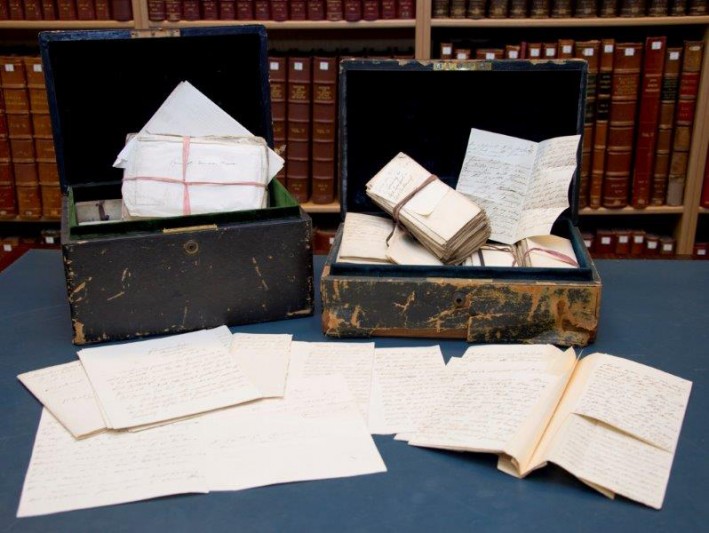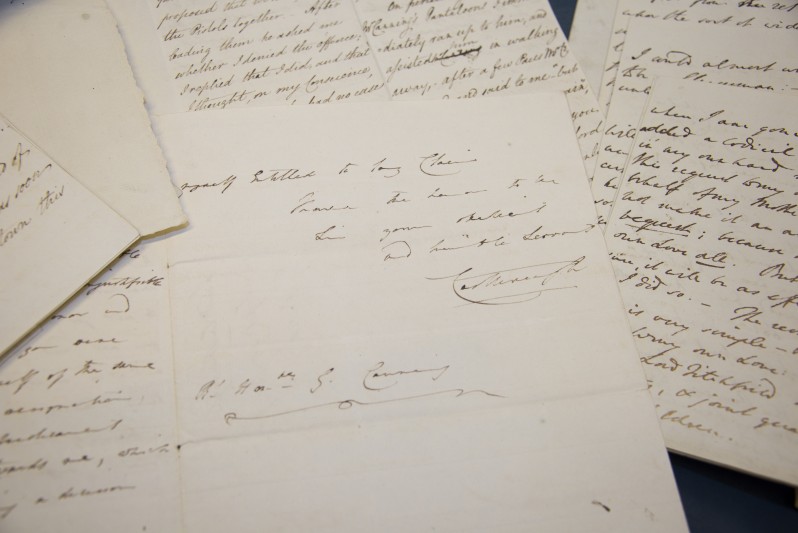The archive of the Canning Family, comprising the papers of George Canning (1770-1827), politician and Prime Minister; his son Charles (1812-1862), Governor-General, later Viceroy of India, and his wife Charlotte (1817-1861); and his son-in-law Ulick de Burgh, 1st Marquess of Clanricarde (1802-1874), postmaster-general.
The Canning family played a pivotal role in nineteenth-century British politics and government. George Canning spent over thirty years at the highest levels of British politics, serving as Foreign Secretary and ultimately as Prime Minister for the last few months of his life. His archive covers all the major issues of the time, including the Napoleonic Wars, the abolition of the slave trade, parliamentary reform and Roman Catholic emancipation. He is perhaps best remembered today for his role in fostering South American independence, and this is well represented in the papers.
His son Charles was Governor-General of India from 1856 to 1862. He dealt with the greatest challenge ever to face the East India Company, the Indian Uprising of 1857, and in its aftermath he worked to recast Britain’s relations with the Indian princes. As the first person to hold the office of Viceroy, he also oversaw the transformation of the East India Company’s administration into a new department of state, the India Office, which continued to oversee the government of the sub-continent until independence in 1947.
Charlotte Canning was an avid diarist and letter writer, whose Indian journals and letters are an important representation of British women in India. Lady Canning was heavily involved in the selection of nurses for the Crimea, and Florence Nightingale’s nine letters to her give a frank account of the problems she faced in the management of the hospital at Scutari.

